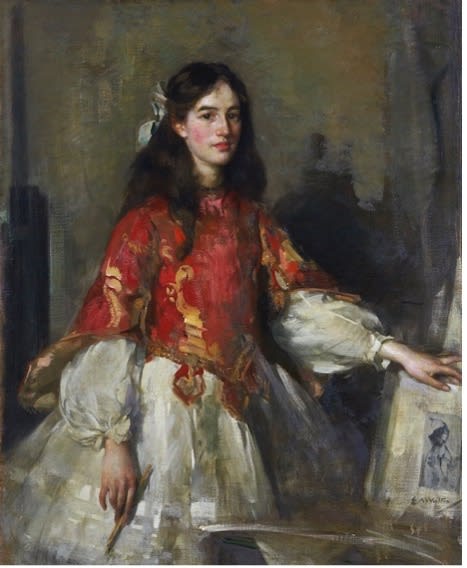Elected ARSA: 11 December 1889
Elected RSA: 8 February 1905
Edward Arthur Walton was born on the 15th of April, 1860, in Renfrewshire. His home influences, coupled with some elementary instruction at the old Glasgow School of Art, followed by a course of training at Dusseldorf during the late 1870s, provided an introduction to the techniques and pursuit of art as a career.
From 1880, Walton exhibited at the Royal Glasgow Institute of Fine Arts in Glasgow and the Royal Scottish Academy in Edinburgh. His work during the 1880s focused mainly on landscapes, and in the early 1890s, it focused predominantly on portraiture.
One of the famous group known as The Glasgow Boys, he was elected ARSA in 1889 and RSA in 1905.

